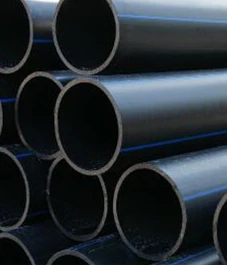Fev . 15, 2025 09:25 Back to list
pp solid sheet
In the world of industrial materials, the versatility and resilience of PP solid sheets have made them an essential commodity for various applications. These polypropylene sheets are revered for their adaptability across industries, from packaging solutions to automotive parts, and even in the construction sector. Their unique properties make them the subject of much interest among manufacturers and product developers.
When discussing construction applications, the benefits of PP solid sheets are equally impressive. Their use in cladding and insulation showcases their strength and thermal efficiency. These sheets maintain their structural integrity under significant pressure, making them suitable for high-stress building applications. Additionally, their non-toxic composition ensures that they are a safe choice for both indoor and outdoor projects. Authoritative sources within the material science community highlight the steady pace of innovation surrounding PP solid sheets. Research and development efforts are continually exploring enhanced formulations and production techniques to further optimize these sheets' performance. Such innovations often focus on increasing thermal resistance, UV stability, and impact resistance, thereby expanding their application realm even further. Trust in PP solid sheets is bolstered by rigorous testing and certification processes. Reputed manufacturers ensure their products meet industry standards through extensive quality assurance protocols. These include mechanical testing for tensile strength, puncture resistance, and chemical composition assessments. Such due diligence fosters consumer confidence and underscores the sheets' reliability across multiple sectors. In conclusion, PP solid sheets stand as a testament to material science's ability to meet complex industry demands through innovation and adaptability. Their continued relevance across sectors is supported by a solid foundation of expertise, authority, and trust, built over years of consistent performance and improvement. As industries evolve, PP solid sheets are poised to remain integral to a myriad of applications, thanks to their remarkable properties and the ongoing commitment to quality and innovation from their developers.


When discussing construction applications, the benefits of PP solid sheets are equally impressive. Their use in cladding and insulation showcases their strength and thermal efficiency. These sheets maintain their structural integrity under significant pressure, making them suitable for high-stress building applications. Additionally, their non-toxic composition ensures that they are a safe choice for both indoor and outdoor projects. Authoritative sources within the material science community highlight the steady pace of innovation surrounding PP solid sheets. Research and development efforts are continually exploring enhanced formulations and production techniques to further optimize these sheets' performance. Such innovations often focus on increasing thermal resistance, UV stability, and impact resistance, thereby expanding their application realm even further. Trust in PP solid sheets is bolstered by rigorous testing and certification processes. Reputed manufacturers ensure their products meet industry standards through extensive quality assurance protocols. These include mechanical testing for tensile strength, puncture resistance, and chemical composition assessments. Such due diligence fosters consumer confidence and underscores the sheets' reliability across multiple sectors. In conclusion, PP solid sheets stand as a testament to material science's ability to meet complex industry demands through innovation and adaptability. Their continued relevance across sectors is supported by a solid foundation of expertise, authority, and trust, built over years of consistent performance and improvement. As industries evolve, PP solid sheets are poised to remain integral to a myriad of applications, thanks to their remarkable properties and the ongoing commitment to quality and innovation from their developers.
Share:
Next:
Latest news
-
Durable PVC-M Water Supply Pipes | 60-Year Life
NewsAug.04,2025
-
Premium HDPE Water Supply Pipes: Durable & Leak-Proof
NewsAug.03,2025
-
Premium PVC-M Water Supply Pipe - Durable & Efficient
NewsAug.02,2025
-
Premium PP Welding Rod: GPT-4 Turbo Enhanced
NewsAug.01,2025
-
HDPE Drainage & Irrigation Pipe - Durable, Efficient Solutions
NewsAug.01,2025
-
Premium PVC Transparent Pipe: Durable & Clear Solutions
NewsJul.31,2025

